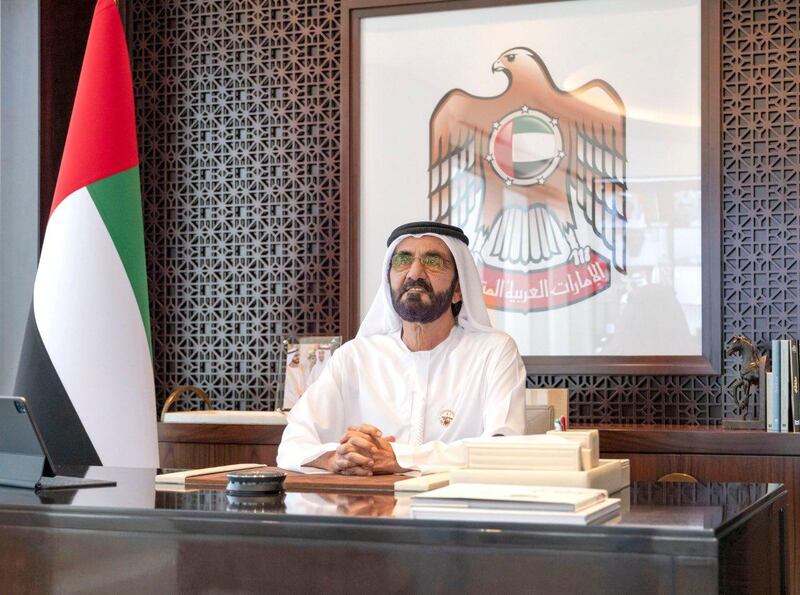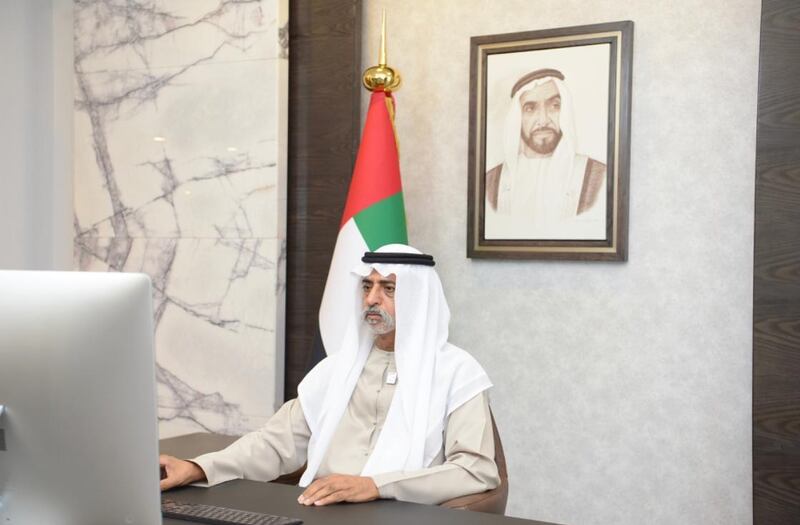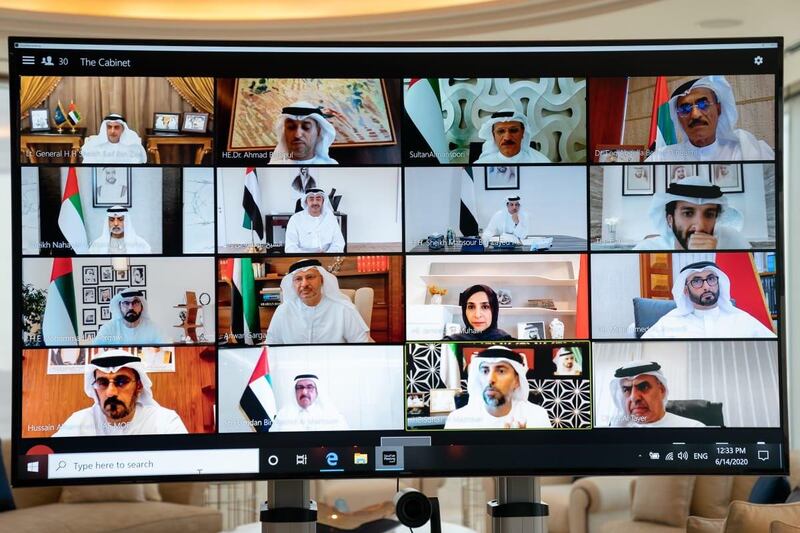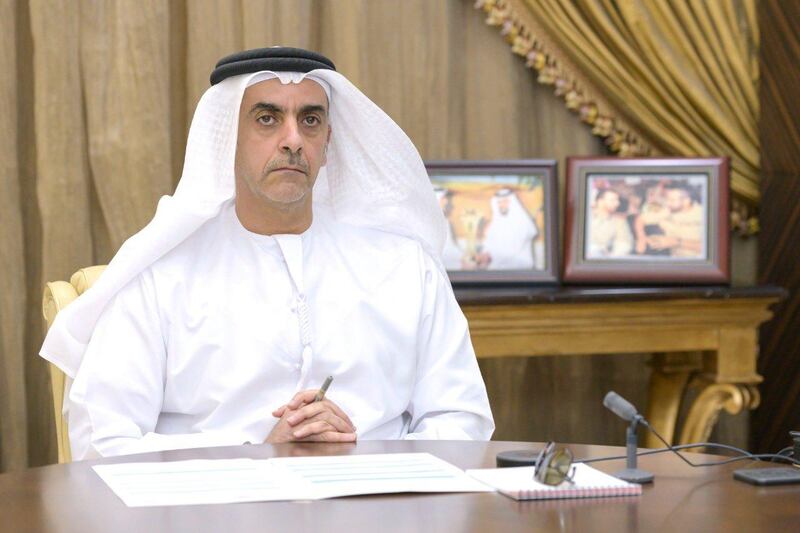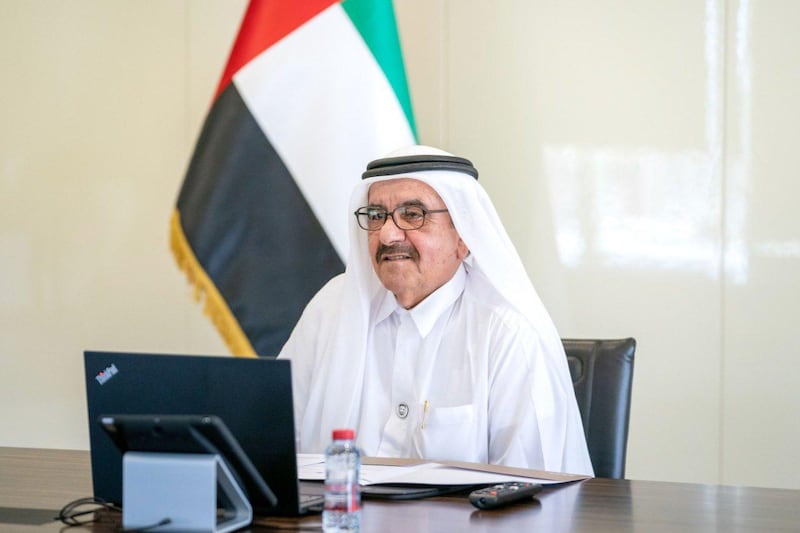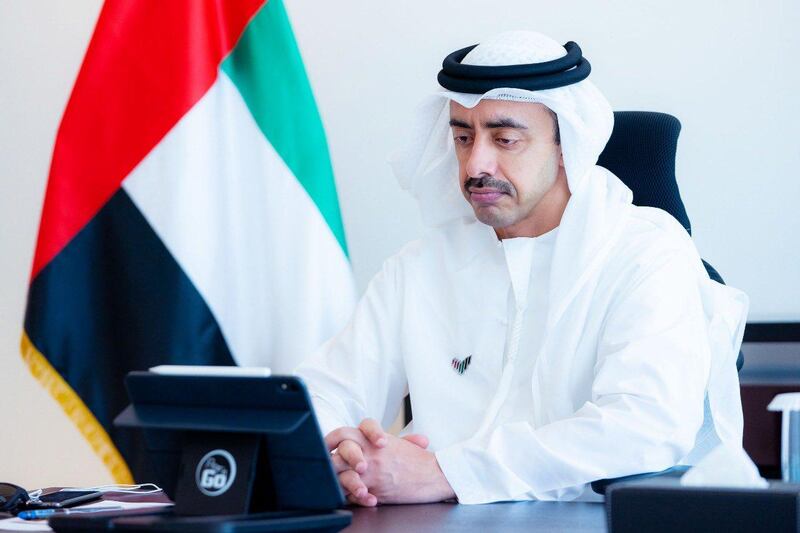The UAE Cabinet has agreed to form a bonus scheme for vital sector workers during times of crisis.
The system includes criteria and a means of distribution to ensure critical staff are compensated for their important work amid emergency situations, such as the Covid-19 outbreak.
"It is our duty to appreciate everyone who contributed and participated in bearing the burdens with us during the crisis," said Sheikh Mohammed bin Rashid, Prime Minister and Ruler of Dubai, who chaired the meeting on Sunday.
"We say to everyone that the best is always to come in the Emirates."
The remuneration will be limited to those in vital jobs in the Ministry of Health and Prevention, this includes medical staff only, in appreciation of the pivotal role they play in countering the Covid-19, reported state news agency Wam.
Among the criteria that the work period under the emergency condition must exceed two months.
Sheikh Mohammed said he was proud of the UAE community for supporting the government and showing great societal awareness and responsibility by adhering to the precautionary measures in place to keep the public safe from the virus.
"The UAE government team is at the forefront … working closely to serve both Emiratis and residents … we continuously improve the services, develop innovative decisions … our goal is to build a bright future for our young generations.," he said.
"Work in the UAE Government will continue from the field and remotely. We embrace the evolution of work practices to maintain leadership and we will adopt innovative systems and tools."
During the meeting, the cabinet members also established Al Etihad Digital Payments Company, a national online payments business that will be responsible for providing safe, secure and fast digital payment services to all sectors.
"Our national digital economy is evolving and our institutions are keeping pace," Sheikh Mohammed said on Twitter.
Recently, the cabinet has focused on making decisions that will prepare the country for life after Covid-19 is no longer a threat.
Some of those changes will be at a government level, while others will effect how business is conducted. The cabinet is also working to identify in which sectors investments should be made going forward to prepare the country for potential future crises.
On Saturday, Sheikh Mohammed spoke again about the changes that need to be made in government, specifically the need to regulate involvement in businesses.
"As life continues to return to our vital sectors … we launched the Governance System for the Federal Government Boards. This aims to establish transparency, avoid conflicts of interests of the board members with the company's activity and with that of other companies, and strengthen the mechanisms of control and organisation," he said.
The system will include a framework and a set of rules that control the work in the boards in a way that ensures proper performance and transparency. The manual is developed according to the best international practices; however, it is customised to suite the conditions of the UAE, Wam said.
The system outlines mechanisms that cover the formation of the board of directors, how meetings are held, member selection, the determining of responsibilities, role definitions and the roles of the main committees.
On Sunday, the Cabinet approved the formation of the management committee for the Education Support Fund, under the chairmanship of Hussain Al Hammadi, Minister of Education.
This committee will support community development programmes by providing additional financial resources, through the fund.
A decision was also made to allow non-government organisations that help people with disabilities adopt their own methods and keep their own structure to continue providing care and rehabilitation services.
This aims to ensures that people with disabilities have access to high-quality rehabilitation, education and training services through an integrated system.
